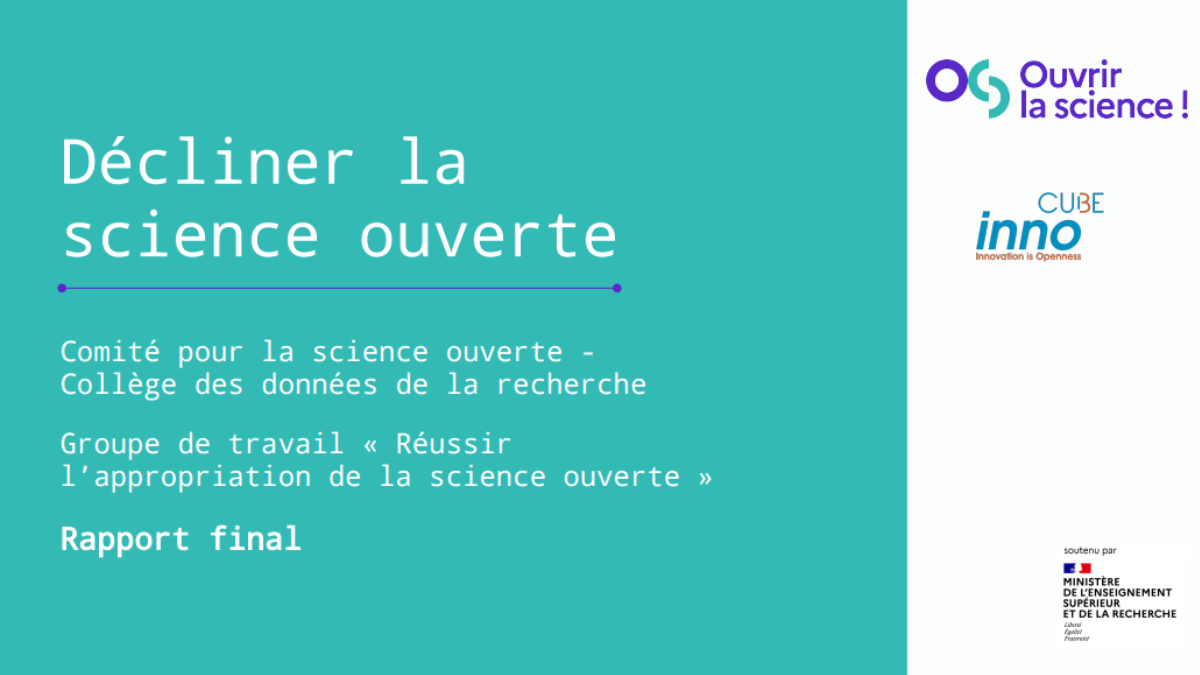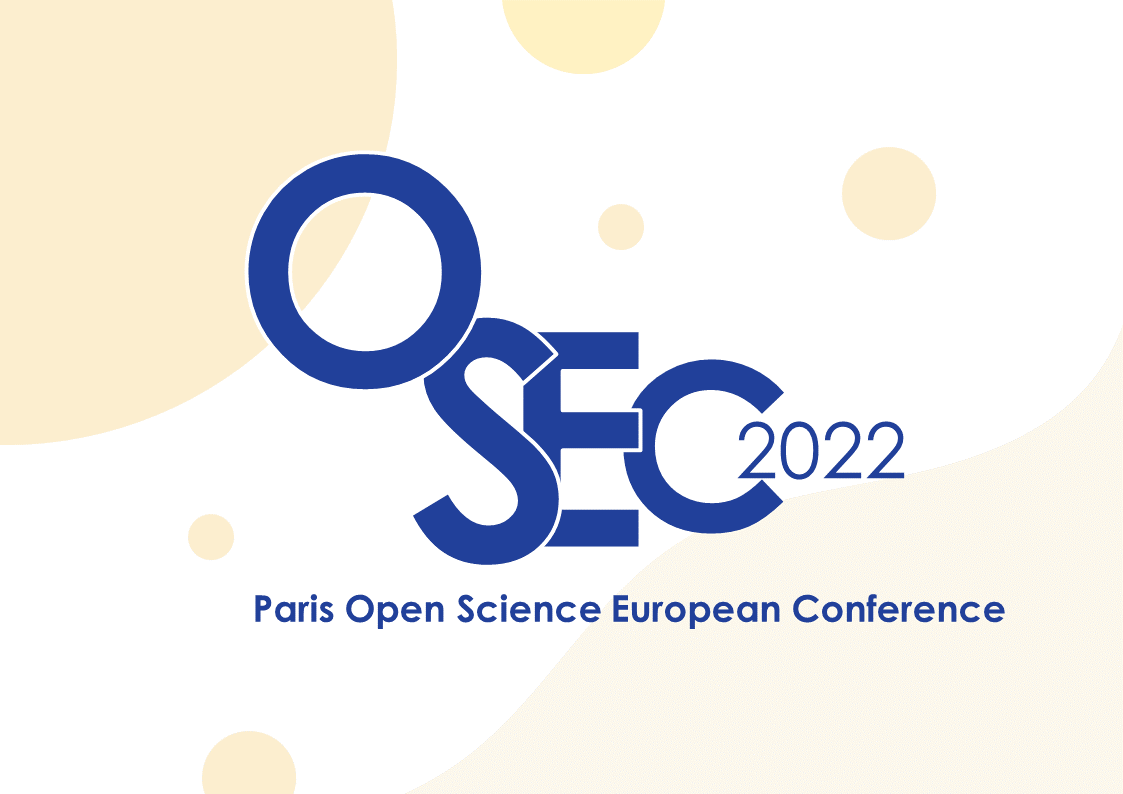‘Décliner la science ouverte’ (Presenting All the Facets of Open Science)
A field survey of research professionals was the basis for the ‘Décliner la science ouverte’ (Presenting All the Facets of Open Science) study that analyses practices associated with data (differentiated according to research communities and contexts) and then devises guidelines to facilitate support.
This study was carried out in the framework of the Committee for Open Science’s “Successfully Appropriating Open Science” project by a multi-disciplinary professional working group from the Research Data College.
The objective was to carry out a field survey of research professionals in various disciplines to:
- better understand the practices associated with data and how these are evolving in the open science context;
- understand the factors that differentiate these practices (discipline, research approach, etc.);
- provide support adapted to different research communities’ requirements.
The survey was carried out between May 2020 and December 2021 and was based on a qualitative and quantitative approach involving interviews, a study day, focus groups and the dissemination and analysis of a “data and open science” questionnaire.
The study’s results underline how important it is to move beyond a solely disciplinary interpretation grid (technical sciences and medicine versus the humanities and social sciences) to distinguish other factors that differentiate various data-related practices. Examples of such factors include the individual or collective nature of scientific work, the research approach (work environment, research quality criteria, the relationship with data, etc.), learning tools and methods or research status and functions (doctoral students, permanent staff, etc.).
The study enabled the group to define four profiles or typologies of practices – experimental, solitary, collaborative and computational – through a quantitative analysis of the questionnaire. Subsequently, a design approach was used and descriptive summaries of fictional characters (personae) were created to better portray the diversity of data practices and the differences between them.
Finally, 20 attention points have been drawn up to help support different research communities by taking their varied practices into account. These were then divided into 5 guiding principles requiring:
- In-depth understanding of the research process including the terms used to qualify data, the criteria for quality research, the added value of the research, etc.;
- Understanding of the different data dissemination practices – re-use of data, limits to making data available, data conservation and security issues, etc.;
- Knowledge of the best learning methods and collaborative practices (training in tools, paying attention to interfaces, etc.);
- Diversification of the types of support – different identified needs, mediation issues in research teams, etc.;
- Status and career issues to be taken into account.
The survey also provided an opportunity to implement open science principles within the working group such as – a collaboration between different disciplinary profiles, free access to the content produced, opening the data and scripts used for the reproducibility of the study, the use of Creative Commons licenses, implementing a data management plan, support for the appropriation of the results through design work, traceability of the qualitative reasoning involved and the questionnaire’s preliminary analysis stages, etc.
All the work is documented in:
- a summary in French and English available on HAL (DOI: 10.52949/28 and 10.52949/29)
- a final report in the form of a presentation with various appendices (interview templates, questionnaire, a data management plan) also available on HAL (DOI: 10.52949/27)
- the questionnaire data available on Recherche.data.gouv (DOI 10.57745/V64RYT)
- scripts (documented source codes) to reproduce the analysis of the questionnaire and a methodological note (on Gitlab).
If you have any comments or question, please contact the working group team by email: cgruson-daniel@inno3.fr
This work was commissioned by the University of Paris on behalf of the Committee for Open Science and its Research Data College and was funded by the Ministry of Higher Education and Research. The study was coordinated by Anne Vanet (working group leader, Vice-President for Open Science at Université de Paris Cité, director of the Institut Jacques Monod’s genoinformatics centre), Hélène Chambefort (Head of archives at the Inserm), Marie Herbert (Collex/Persée project manager – Lyon 1 University), Juliette Hueber (Head of Editorial and Documentary Engineering – InVisu CNRS/INHA), Claire Lemercier (CNRS research professor at CSO SciencesPo), Célya Gruson-Daniel (project leader for open research-action projects at Inno³ and associate researcher at COSTECH -UTC). We would like to thank everyone who gave us their time and showed interest in this study by taking part in the “from the field to data in the HSS” study day, the qualitative interviews or by responding to the “data and open science” questionnaire.
The “Successfully Appropriating Open Science” project was initiated following on from one of the working groups from this college on data usage and governance.





